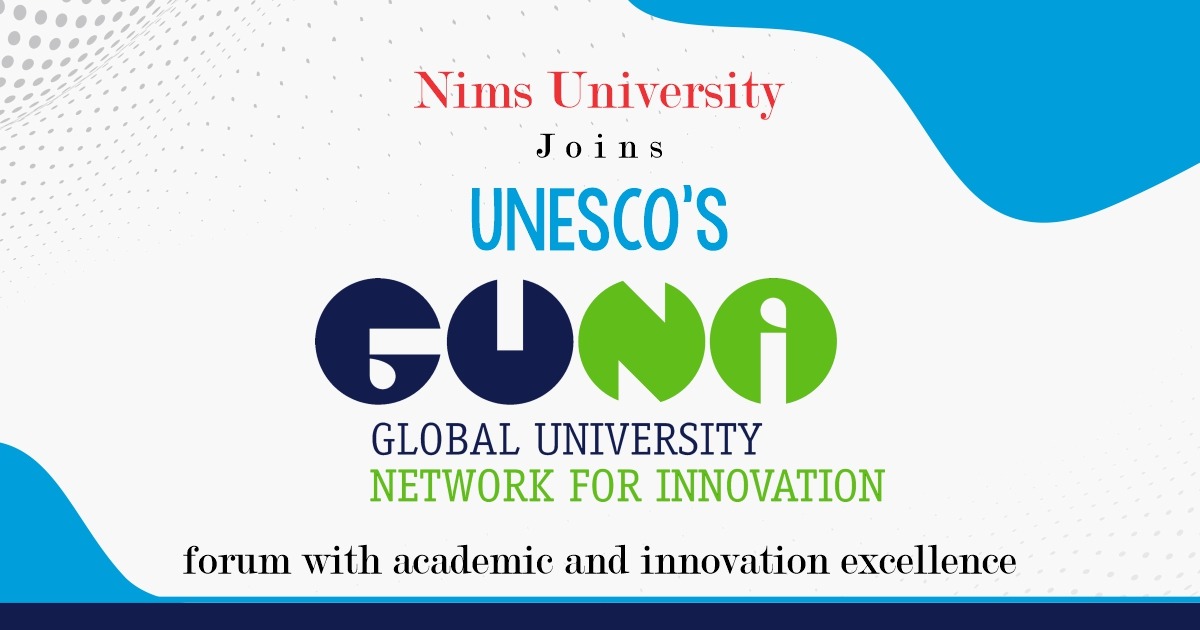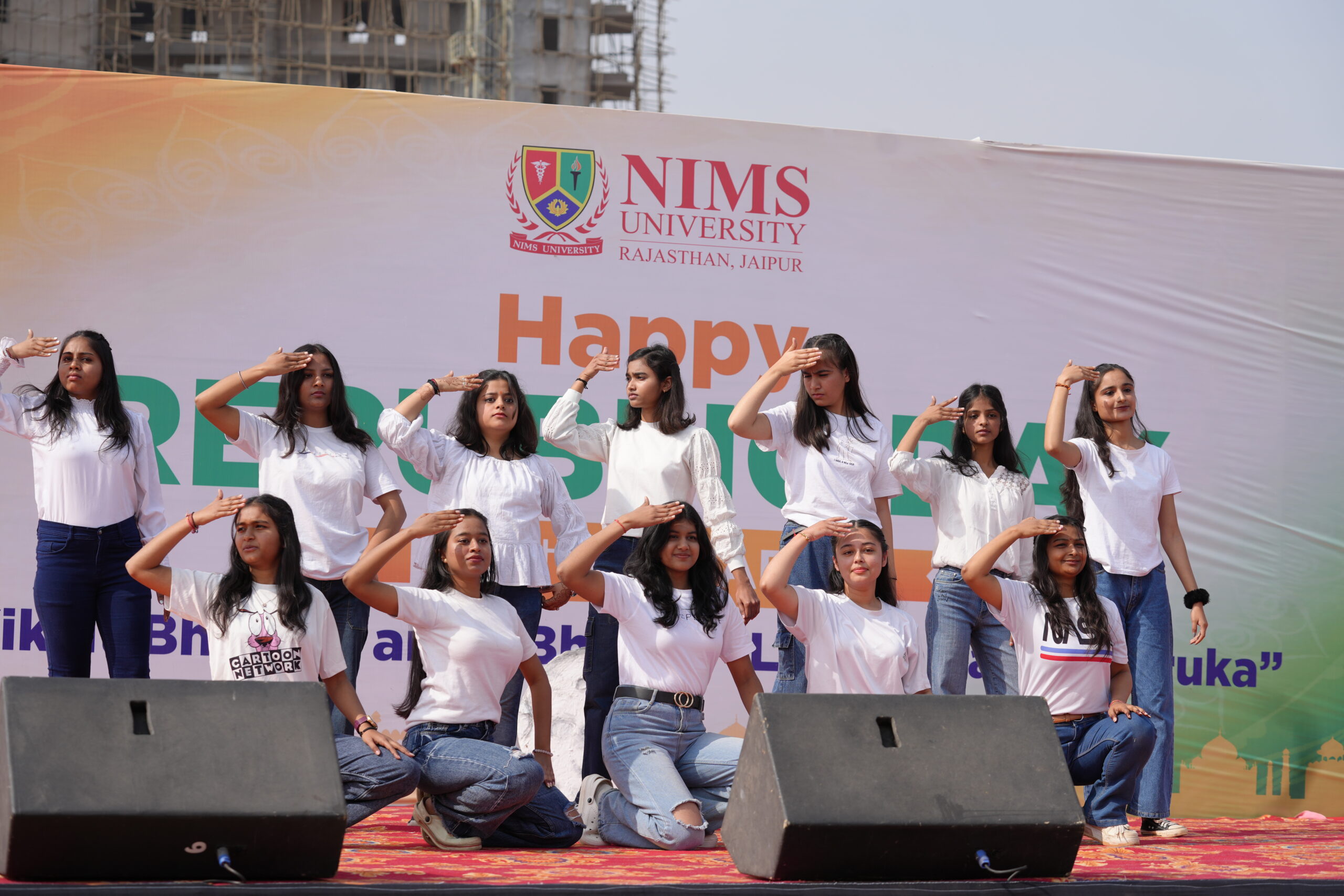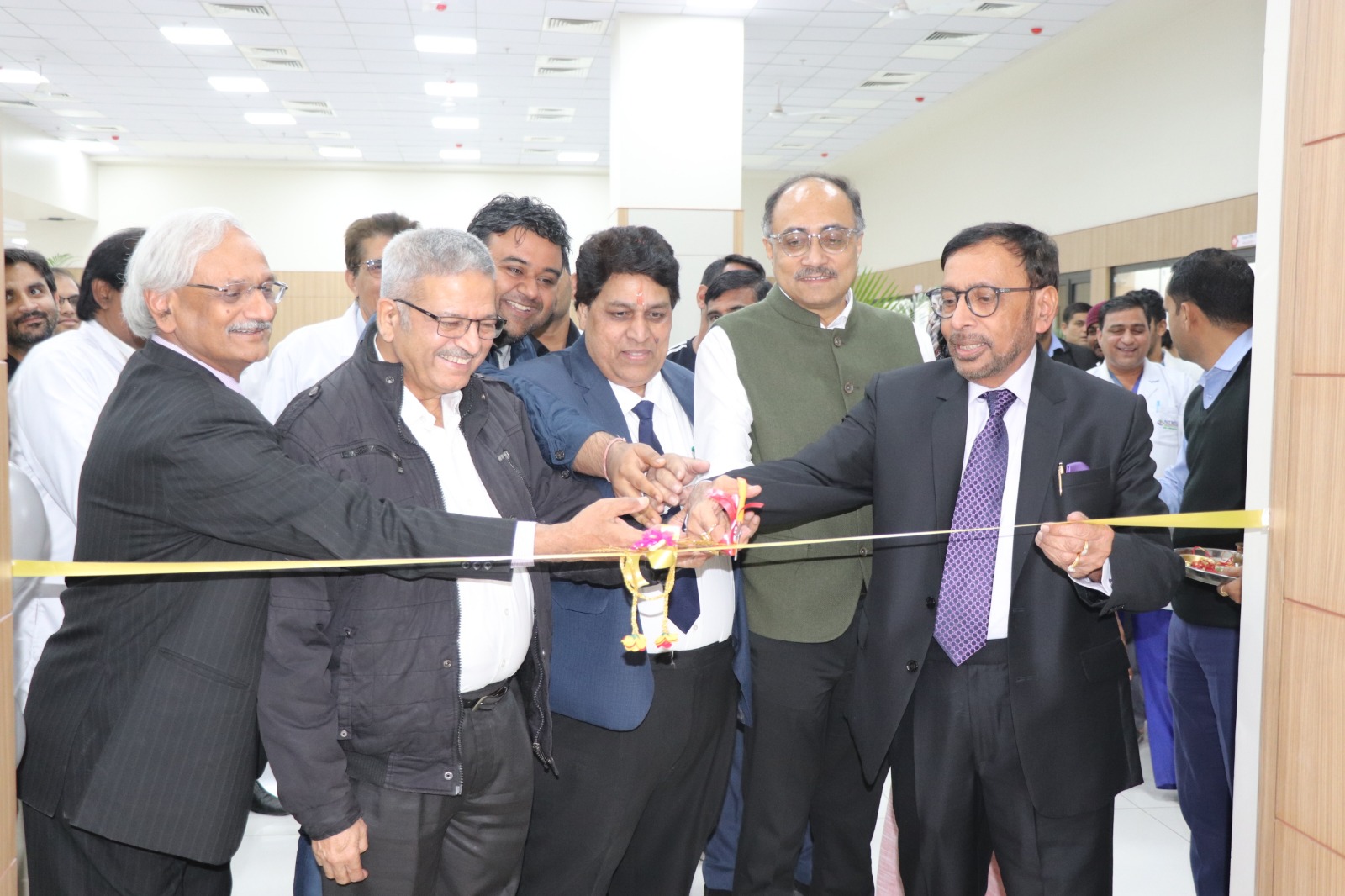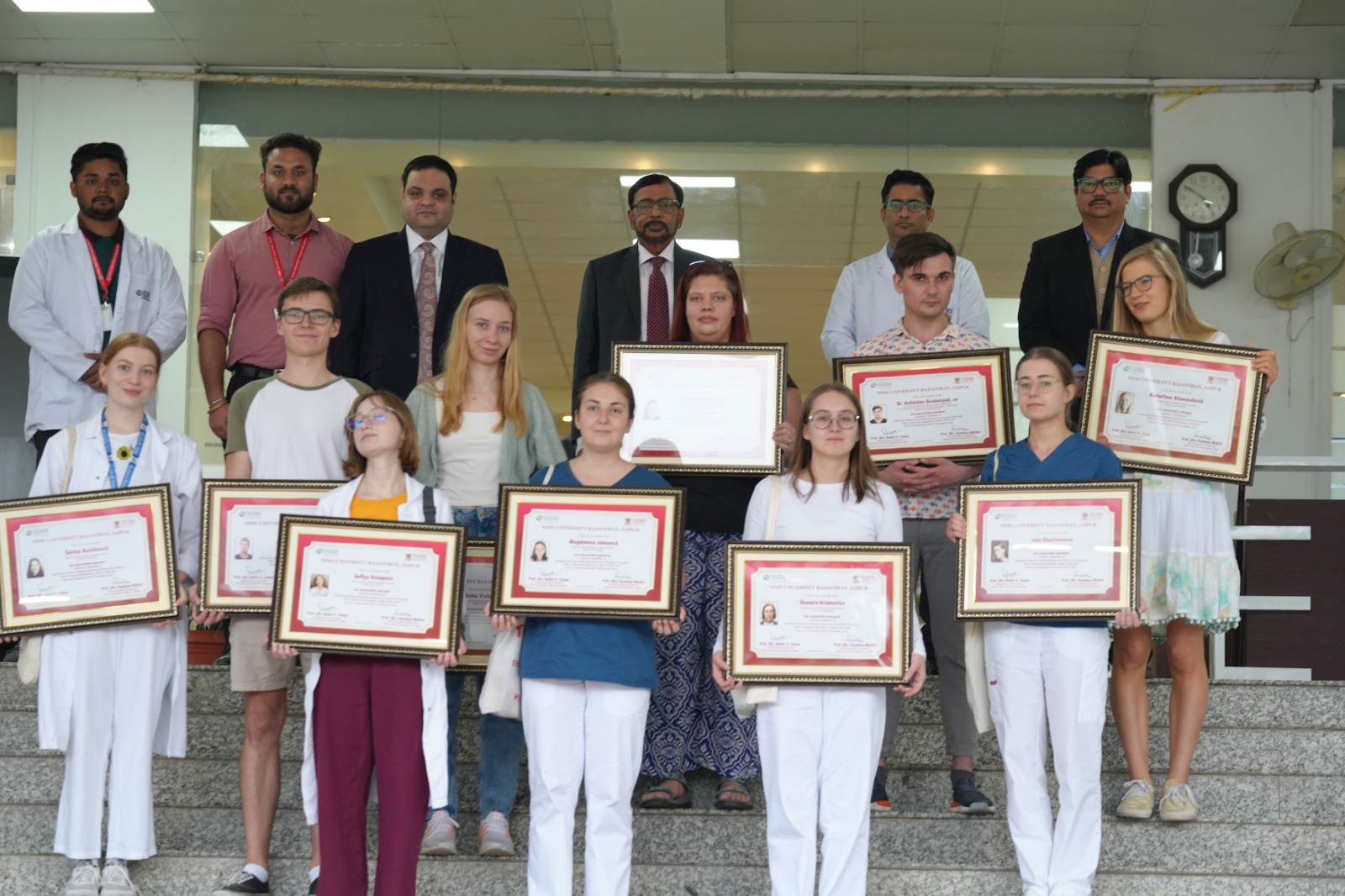Jaipur: The 38th National Eye Donation Fortnight annual event kicked off from the NIMS University Rajasthan, Jaipur by Sh. Lalit Kothari, IAS (Retd.) with the objective to increase awareness of eye donation, dispel common misconceptions, and encourage posthumous donation. The mission is to: Educate the public on the importance of eye donation; counter pose common myths about eye donation; and Encourage people to consider post-mortem eye donation as an ethical and life-changing practice.
The event was graced by former Indian Administrative Officer Sh. Lalit Kothari, who was accompanied by Mrs. Anju Jain, Management Graduate, Social worker, and Executive Member of the Eye Bank Society of Rajasthan, and Govind Gurbani, Executive Member- Eye Bank Society of Rajasthan and other attendees included Dr. Chaman Ram Verma- Dean of Health and Allied Sciences, Nims University Rajasthan, Dr. Mukesh Tiwari- Principal and Controller, National Institute of Medical Sciences and Research, Nims University Rajasthan and Dr. Tajinder Ahluwalia, Head of the Ophthalmology Department, Nims University as well as faculty and students of Nims University were also present.
The key note speaker of the event Sh. Lalit Kothari, Secretary of Eye Bank Society of Rajasthan expressed his concern on blindness and its impact on people. He talked about how important it is for us to think about those who don’t have our eyes. The cornea plays a vital role in maintaining our vision, in a human body; the eyes are often the only ones that remain healthy.” He stressed on the importance of cornea transplants and said that so far they have received 19,000 corneas and 12,000 of them have been delivered to hospitals of Rajasthan. The essence of eye donation lies in corneal transplants, which can help restore vision and “Reuse and Recreate the world” for those who are blind. Mr. Kothari pointed out that Sri Lanka is the leading exporter of corneas globally.
He also urged to the gathering to work together to raise awareness about eye donation, whether it’s private, government, or non-government. He said that collecting corneas isn’t the hard part – it’s making sure it’s done in time for the patients.
The Head of the Department of Ophthalmology of Nims University, Dr. Tajinder Aahuwala welcomed all the guests and stated that, “in the current climate of pandemic-related events, it is essential to increase public awareness and encourage organ donation as an integral part of a healthy lifestyle. He further noted that, in the aftermath of the pandemic, there has been an increase in the need for organs, particularly eyes and liver”.
Govind Gurbani, Executive Member, Eye bank Society of Rajasthan, NGO at US Geneva, National Eye Donation Foundation highlighted the importance of observing National Eye Donor Fortnight in order to raise awareness of the significance of eye donation and encourage individuals to donate their eyes after death. He urged the young medical fraternity and volunteers and said, “Let us not forget that blindness is one of the world’s main public health challenges”, we have to tackle this only by spreading awareness and active participation of you all”.
Mrs. Anju Jain, Executive Member of the Eye Bank Society of Rajasthan, presented on the topic of eye donation. She mentioned that they obtain corneas from hospitals and are actively focusing on voluntary donations. As a society, they not only provide corneas to hospitals but also raise awareness to facilitate easy access.
She also highlighted the significant impact of corneal blindness, which has resulted in the loss of vision for approximately 4 lakh people. She identified various causes of corneal blindness, including malnutrition, infections, post-operative complications, birth-related issues, accidents, and even seasonal factors like conjunctivitis during monsoons.
During the question and answer session following the presentation, students had the opportunity to clear their doubts about various aspects of eye donation and corneal transplantation, common concerns and misconceptions. Some of the questions addressed included: Who can be a Donor? How prevalent is corneal transplantation? What happens if corneas are not suitable for transplant? Is the whole eye transplanted and how successful is corneal transplantation?
Ms. Jain’s appeal to the younger generation to use social media and other modern communication tools to spread awareness about eye donation is both significant and inspiring.
Additionally, her emphasis on the motivation and respect of those who have chosen to donate their eyes, referred to as “Jyoti Mitras”. She emphasizes the necessity of support and understanding when it comes to organ donation. Developing a culture of respect for those who make the decision to donate organs can help to create a more compassionate society.
In her closing remarks, the Director of the Nims University, Dr. Swati Tomar drew attention to the potential of medicine in India and the need to bridge the gaps between rural and urban populations when it comes to eye donation. Dr. Tomar noted that each of us is an ambassador for a better tomorrow and that it is our responsibility to spread awareness and provide the gift of sight to those in need, bringing smiles and joy to those who need it. She concluded her message with the words “awareness to action”, emphasizing that it is through our collective effort and commitment that awareness will be transformed into action, ultimately leading to a more compassionate and more inclusive society.
About Eye Bank Society of Rajasthan
Eye Bank Society of Rajasthan (EBSR) is a non-profit organization that was started in 2002 by retired civil servants and social workers. It’s all about raising awareness about eye donation and eye sight restoration for people with corneal blindness. It’s part of the National Programme to Eradicate Cerebral Blindness. It’s registered under both the Rajasthan society law and the human organ transplant law. It’s allowed to do everything related to eye banking under HOTA.








